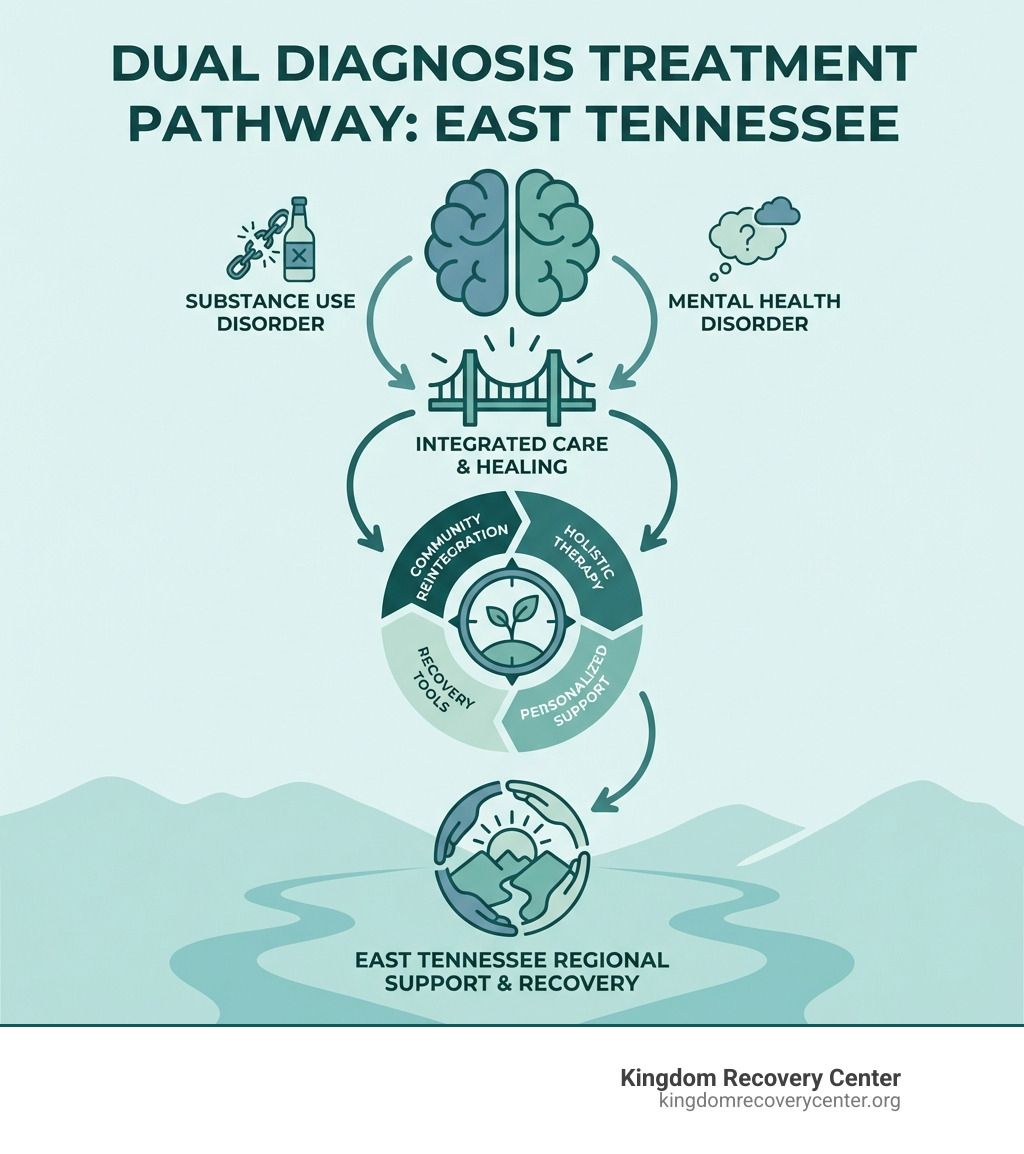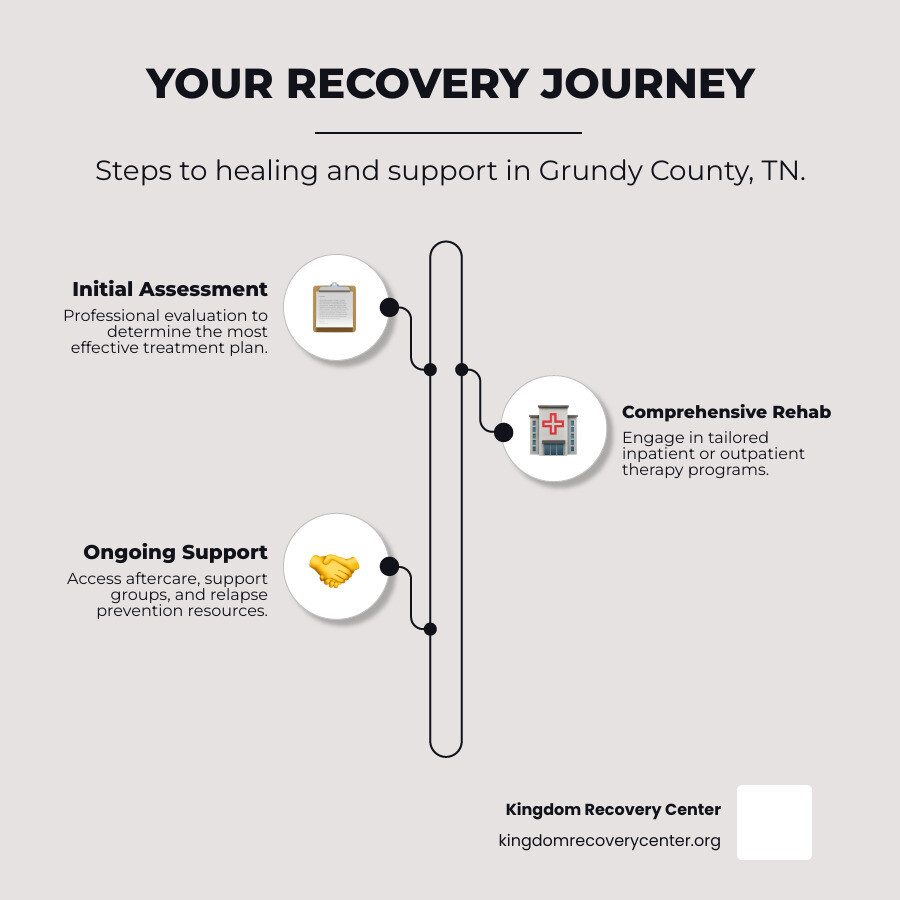
For many individuals, addiction doesn’t exist in isolation. Often, it’s intertwined with deep emotional wounds caused by past trauma. Trauma can stem from a variety of experiences, including childhood abuse, domestic violence, loss, neglect, or exposure to violence. Left untreated, these unresolved feelings can lead to destructive coping mechanisms, such as substance abuse, as individuals attempt to numb their emotional pain.
At Kingdom Recovery Center, we understand that treating the root cause of addiction is just as important as addressing the addiction itself. Trauma therapy plays a pivotal role in effective addiction treatment, providing individuals with the tools to process their past pain and form healthier coping strategies. In this blog post, we’ll explore the relationship between trauma and addiction, the benefits of trauma therapy within addiction treatment, and how it fits into a comprehensive recovery plan.
What is Trauma?
Trauma can be described as the emotional response to a deeply distressing or disturbing event. While many people experience uncomfortable or upsetting experiences in life, trauma refers to events so overwhelming that they change how a person views themselves, others, or the world.
Trauma can happen at any age and often stems from situations such as:
- Childhood abuse or neglect.
- Survivors of sexual assault or domestic violence.
- Witnessing or being involved in violent incidents.
- Experiencing loss—a loved one, stability, or health.
- Surviving natural disasters, war, or accidents.
In some cases, trauma may lead to Post-Traumatic Stress Disorder (PTSD), a condition characterized by intrusive memories or flashbacks, emotional numbness, and avoidance behavior. Even without a PTSD diagnosis, trauma often impacts mental health, leading to conditions such as depression, anxiety, and in some cases, substance use disorders that further complicate an individual’s well-being.
How Does Trauma Contribute to Addiction?
There is a significant link between trauma and addiction. Research has shown that individuals who experience trauma are more likely to develop substance use disorders than those without a history of trauma. According to the National Institute on Drug Abuse (NIDA), an estimated two-thirds of individuals in addiction treatment report past trauma or abuse as a contributing factor. Source: NIDA.
Here are some ways trauma can lead to addiction:
1. Self-Medication
One of the most common ways that trauma influences substance abuse is through self-medication. For many, coping with the overwhelming feelings caused by trauma can be extremely difficult. To escape intense emotions such as grief, anxiety, and fear, individuals might turn to drugs or alcohol. Substances like opioids, alcohol, and benzodiazepines, which have sedative effects, offer temporary relief from emotional pain, but this often traps users in a cycle of dependence.
2. The Role of the Brain in Trauma and Addiction
Trauma impacts how the brain processes stress, emotions, and memories. Chronic trauma can even cause long-term changes to the brain’s reward system and other critical areas, such as the amygdala, hippocampus, and prefrontal cortex. These alterations may cause people to:
- Struggle with emotional regulation.
- Have a heightened sensitivity to stressors.
- Become more vulnerable to developing unhealthy coping mechanisms like substance use.
Opioids, stimulants, and alcohol trigger the brain’s reward system, producing feelings of pleasure. This ability to temporarily override emotional pain makes substances attractive to those suffering from unresolved trauma, creating a pathway to abuse and addiction.
3. Triggers and Relapse
People with unaddressed trauma are typically more vulnerable to addiction relapse. Even if they’ve completed a detox program, emotional triggers—such as memories of traumatic events—may push them back toward substance abuse. That’s why trauma therapy is a necessary component of substance use disorder treatment, helping individuals identify, process, and manage these triggers effectively.
How Trauma Therapy is Integrated into Addiction Treatment
Trauma therapy is an essential part of dual diagnosis care, which is a comprehensive treatment model designed to address co-occurring mental health conditions like PTSD alongside addiction. By focusing on both the addiction and the underlying emotional distress simultaneously, clients can achieve deeper healing and reduce their chances of relapse.
What is Trauma Therapy?
Trauma therapy specifically works to help individuals process distressing past events, regulate emotions, and develop healthier coping mechanisms. In addiction treatment, trauma therapy doesn’t just aim to help clients stop using substances—it works to resolve inner struggles that may have driven their addiction in the first place.
Benefits of Trauma Therapy within Addiction Treatment
When appropriately implemented, trauma therapy within addiction treatment programs provides the following benefits:
1. Addresses the Root Cause
Addiction often stems from unresolved emotional pain tied to trauma. Trauma therapy allows clients to explore these experiences in a safe, supportive environment, get to the root of their substance use, and break free from the cycle of addiction and negative behaviors.
2. Reduces Emotional Triggers
Trauma therapy helps clients identify situations, thoughts, and memories that trigger their negative emotional responses. Therapists equip individuals with techniques to respond differently to triggers, alleviating the need for substances as a coping mechanism.
3. Supports Emotional Healing
Working through past trauma is key to emotional healing, allowing individuals to regain the confidence, self-awareness, and resilience needed for long-term recovery. Trauma therapy helps clients rebuild trust, improve relationships, and rediscover their sense of self.
4. Prevents Relapse
Unresolved trauma can increase the risk of relapse after treatment. By equipping individuals with tools to manage emotional distress, trauma therapy plays a critical role in reducing relapse and supporting lifelong sobriety.
Common Therapies Used to Treat Trauma in Addiction Recovery
Trauma therapy can take many forms, but some of the most effective approaches include:
1. Trauma-Focused Cognitive Behavioral Therapy (TF-CBT)
TF-CBT is an evidence-based approach that helps clients identify and reshape negative thought patterns caused by trauma. By reframing their mindset, individuals can reduce their emotional triggers, minimize the urge to use substances, and develop healthier coping skills.
2. Eye Movement Desensitization and Reprocessing (EMDR)
EMDR therapy focuses on targeting unresolved trauma by helping clients revisit these memories in manageable ways while using bilateral stimulation (such as controlled eye movements). This therapy empowers individuals to desensitize their emotional reactions to traumatic memories, reducing anxiety and avoiding harmful coping mechanisms.
3. Somatic Therapies
Trauma is often stored in the body, leading to muscle tension, chronic pain, and other physical symptoms. Somatic therapies focus on releasing stress from the body through activities such as therapeutic touch, yoga, and breathwork, helping individuals heal physically and emotionally.
4. Group Therapy
Sharing experiences in a group setting can provide a sense of community and reduce feelings of isolation. Trauma-informed group therapy fosters healing, providing individuals with the opportunity to connect with others who understand their struggles.
How Kingdom Recovery Center Incorporates Trauma Therapy
At Kingdom Recovery Center, our addiction treatment programs in Morristown, TN, are designed to identify and address both addiction and unresolved trauma through dual diagnosis care. We understand that healing the whole person requires treating the root causes contributing to addiction.
Our approach to trauma therapy includes:
- Individualized assessments: We evaluate each client to uncover the impact of past trauma and how it has contributed to their substance use.
- Evidence-based therapies: Our clinicians use TF-CBT, EMDR, and other proven interventions to help clients process traumatic experiences and skillfully manage triggers.
- Holistic approaches: We integrate practices like meditation, yoga, art therapy, and music therapy for trauma relief and stress reduction.
- Supportive environment: Our facility provides a safe and nurturing space for healing, offering clients the tools and encouragement they need to achieve lasting recovery.
A Trauma-Informed Approach to Lifelong Healing
At Kingdom Recovery Center, we recognize the profound connection between trauma and addiction. Without addressing the emotional distress at the heart of addiction, recovery is often incomplete, leaving individuals vulnerable to relapse or emotional struggles. Trauma therapy plays an essential role in helping individuals rebuild their lives, fostering both emotional and physical resilience.
Statistics on Trauma and Addiction
Research suggests that 70% of adults in the U.S. have experienced at least one traumatic event, and among those struggling with addiction, the likelihood of trauma is even greater. In fact, individuals with trauma-related disorders are 15 times more likely to develop substance abuse issues than those without. Source: Substance Abuse and Mental Health Services Administration (SAMHSA).
Why Choose Kingdom Recovery Center for Trauma Therapy and Addiction Recovery?
If you or a loved one is struggling with both trauma and addiction, professional care is essential for breaking free from these destructive cycles. At Kingdom Recovery Center, our compassionate team is experienced in trauma-informed addiction treatment, offering a blend of clinical and holistic therapies to help you heal fully.
Whether you’re living with unresolved trauma, fighting substance dependency, or both, we’re committed to equipping you with lifelong coping tools that foster peace, self-awareness, and lasting sobriety.
Take the First Step Toward Healing Today
You deserve a life free from addiction and the pain of unresolved trauma. Contact Kingdom Recovery Center today or visit our website to schedule your free consultation. Let us help you reclaim your life and discover a brighter, healthier future—one where past pain no longer defines your present. Recovery starts now.



